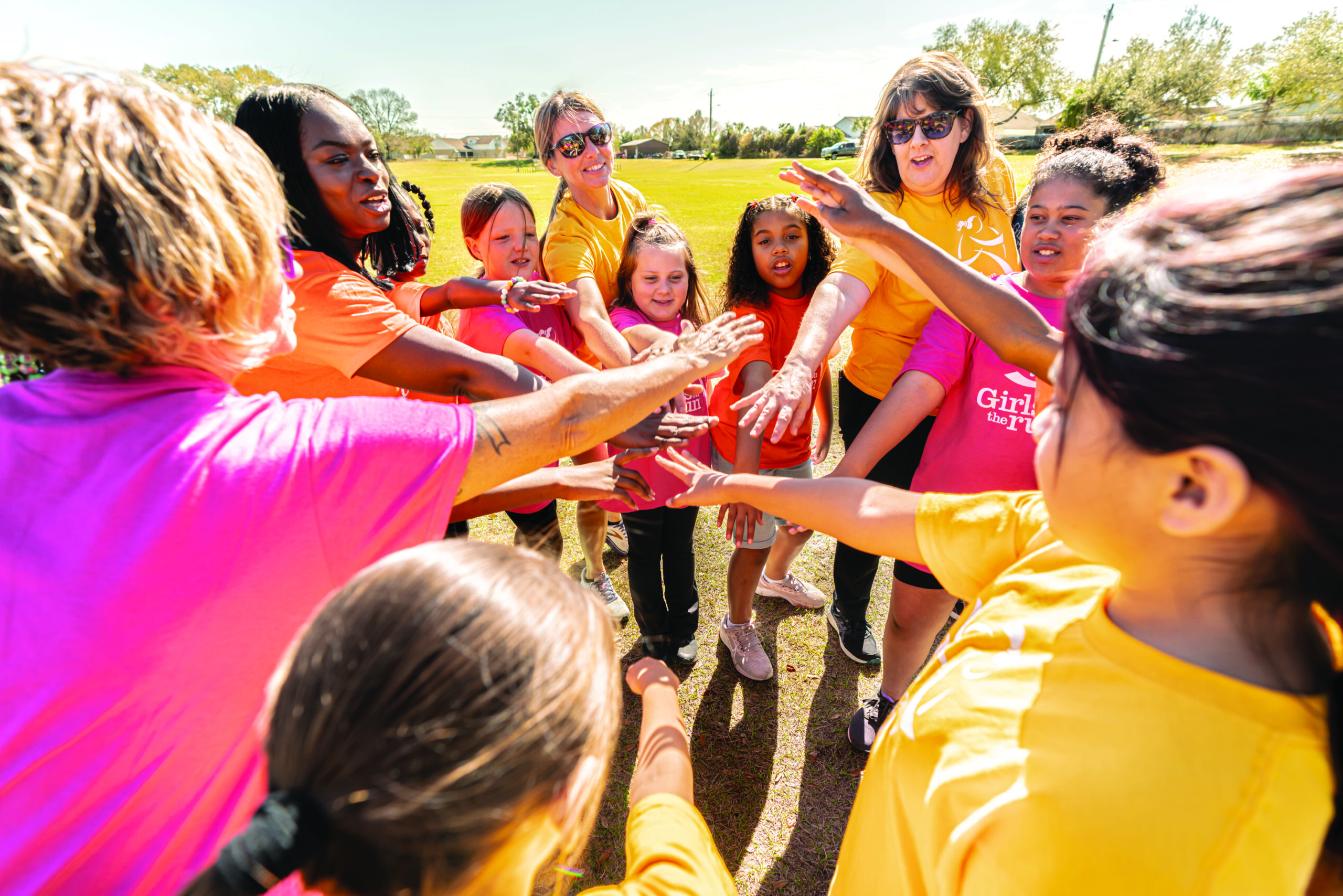Narrative Signature Issue
Reimagine Marketing and Messaging about Coaching
In marketing and messaging, representations of coaches remain based on old stereotypes — about who coaches are, what role they play, how they behave, and what success looks like. Historically pictured is an authority figure, probably yelling or blowing their whistle, who instills fear and uses punishment in response to mistakes. While research continues to challenge such taken-for-granted assumptions about good coaching, more can be done. By reimagining marketing and messaging about coaching, we can open the door for more conceptions of coaching and influence changes in who coaches and how they practice.
→What it looks like when we get it right: Coaching shows up in marketing as messaging as a role for anyone – regardless of gender, race, age, body type or athletic background. The behaviors that are valued are emotionally supportive, growth-oriented and child-centered. Coaches are presented as mentors, valued for shaping confident, connected, healthier kids – not just winning games.
→Who can drive this change? Media; Sports Governance; Pro/College Sport; Program Operators

Why This Issue
To build a stronger and more inclusive coaching ecosystem, we need to expand people’s view of coaches and coaching. The key message? Coaching is for everyone and coaching is one of the most powerful tools we have to support the next generation and create real change.
Ideal coaching is about more than winning games — it’s about winning hearts and minds. Great coaches create a safe, inclusive space where every person feels valued, challenged, and supported to grow as an athlete and as a human being. They lead with empathy, model respect, and use sport as a tool to build confidence, connection, and lifelong joy in being active.
Getting Started
Audit and update imagery: If we want more people to see themselves as coaches we need to showcase a wider variety of coaches. Replace stereotypical imagery and highlight all types of coaches including volunteers, young adults, women, parents, and coaches from different cultural backgrounds.
Use values-based language in your messaging. Focus on what really matters in a coach – not just technical skills, but the relationship skills and rapport building that have the potential to change kids’ lives. When recruiting, we can focus less on “Do you have experience in sports?” and more on “Do you want to help young people build confidence?” We encourage leaders to stress the importance of heart and joy in working with young people; not simply prior coaching experience.
Change the words, change the coach. Language and tone directly influence perceptions and recruitment. Everyone working in sport can make intentional word choices to portray great coaching differently. Use words to set the tone in a way that highlights coaches as relatable, supportive and fun. Emphasize approachability over authority. Highlight effort, evolution and joy. Incorporate words such as connection, fun, authentic, welcoming, encouragement, and growth.
Choose visuals that reflect inclusive, athlete-centered coaching. Move beyond imagery of coaches shouting on the sidelines. Show coaches listening, laughing, high-fiving players, and building teams.
Tip: Build a library of images from practices and games and ask your community to share photos that represent team culture.
Game Changing Content
| Item | Description |
|---|---|
| MCC Marketing and Communications Guide | Practical tools, messaging frameworks, and creative direction to ensure marketing materials reflect the kind of coaches every child deserves: supportive, inclusive, relatable, and joy-focused. |
| The Complete Coach |
Positive coaching approach where the first goal is striving to win. The second, and even more important, goal is teaching life lessons. |
| Marketing Toolkit | The skills and attributes of quality coaching, taken from five core principles: essential knowledge, contextual fit, athlete-centered coaching, evaluation/recognition and coach wellbeing. |